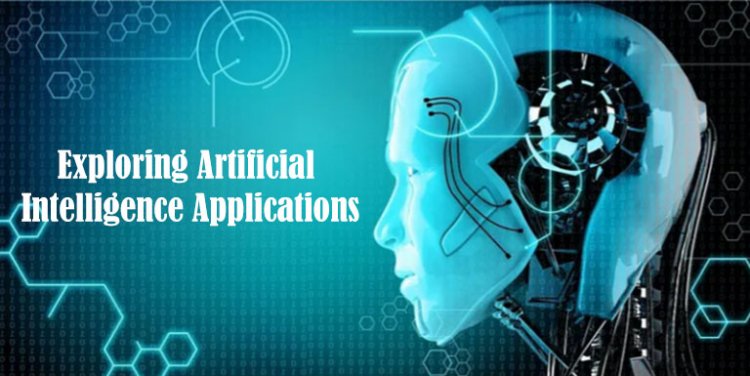Exploring Artificial Intelligence Applications

Artificial Intelligence (AI) is no longer a futuristic concept; it's a powerful force that's transforming industries, driving innovation, and impacting our daily lives. In this blog post, we will explore the wide-ranging applications of AI, from healthcare to finance and beyond, showcasing how this technology is shaping the future.
Understanding Artificial Intelligence
Artificial Intelligence is a branch of computer science that aims to create systems and machines capable of performing tasks that typically require human intelligence. These tasks include problem-solving, understanding natural language, recognizing patterns, and learning from experience.
AI in Healthcare
-
Diagnosis and Disease Prediction: AI-powered diagnostic tools can analyze medical images, such as X-rays and MRI scans, to detect diseases like cancer, often with a high degree of accuracy.
-
Drug Discovery: AI can accelerate drug discovery by identifying potential candidates for new medications and predicting how they'll interact with the human body.
-
Personalized Medicine: AI analyzes an individual's genetic makeup and medical history to tailor treatment plans, medications, and preventive measures.
-
Predictive Analytics: Healthcare providers use AI to predict disease outbreaks, manage hospital resources, and make more informed decisions for patient care.
AI in Finance
-
Algorithmic Trading: AI algorithms analyze market trends and execute trades at lightning speed, optimizing investment portfolios.
-
Risk Assessment: AI assesses credit risk by analyzing financial data and behavior, helping banks and lending institutions make informed lending decisions.
-
Fraud Detection: AI systems can detect fraudulent transactions in real-time by analyzing transaction patterns and user behavior.
-
Customer Service: Chatbots and virtual assistants powered by AI provide personalized and efficient customer support, enhancing the user experience.
AI in Transportation
-
Self-Driving Cars: AI algorithms process sensor data to navigate vehicles autonomously, potentially reducing accidents and improving traffic flow.
-
Traffic Management: AI is used to optimize traffic signal timings, reducing congestion and improving urban mobility.
-
Logistics and Supply Chain: AI helps in route optimization, inventory management, and demand forecasting, improving the efficiency of logistics operations.
-
Public Transportation: AI-powered systems predict public transportation delays, helping commuters plan their routes effectively.
AI in Education
-
Personalized Learning: AI adapts educational content to individual student needs, providing a personalized learning experience.
-
Tutoring and Homework Help: AI chatbots and virtual tutors assist students with homework and answer their questions.
-
Administrative Tasks: AI streamlines administrative tasks like grading, scheduling, and record-keeping for educational institutions.
-
Accessibility: AI tools provide accessibility options for students with disabilities, such as speech-to-text and text-to-speech conversion.
AI in Entertainment
-
Content Recommendation: Streaming platforms like Netflix and Spotify use AI to recommend content based on user preferences.
-
Video Game AI: In gaming, AI enhances non-player characters (NPCs), providing more dynamic and challenging gameplay.
-
Content Creation: AI can generate art, music, and even write content, like news articles and creative writing.
AI in Cybersecurity
-
Threat Detection: AI analyzes network traffic and system behavior to detect and respond to cybersecurity threats in real-time.
-
User Authentication: AI-based biometric authentication methods, like facial recognition, provide enhanced security for devices and systems.
-
Predictive Security: AI predicts potential security threats and vulnerabilities, allowing organizations to take preventive measures.
Challenges and Ethical Considerations
While AI applications hold great promise, they also come with challenges, including privacy concerns, algorithmic biases, and the impact on employment. Ensuring responsible and ethical use of AI is essential.
Artificial Intelligence applications are expanding across diverse industries, enhancing efficiency, decision-making, and overall quality of life. As AI technology continues to advance, its role in shaping the future of human civilization will only become more prominent. To harness the full potential of AI, we must continue to explore its possibilities while addressing ethical and societal challenges, paving the way for a brighter, more intelligent future.
What's Your Reaction?















